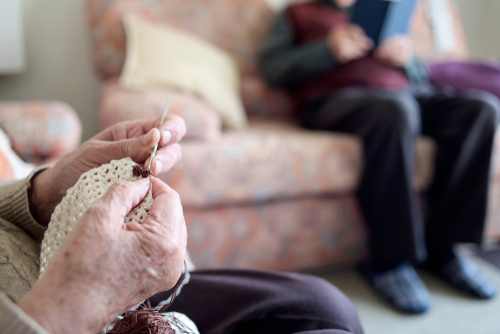Blog

The Impact Of Socialization On Mental Well-being In Assisted Living
May 6, 2024 0 Comment Category: Care Center
Assisted Living
Socialization is a fundamental aspect of human life, playing a crucial role in shaping our mental well-being and overall quality of life. For seniors residing in assisted living facilities, maintaining social connections and engaging in meaningful interactions are essential for fostering a sense of belonging, purpose, and fulfillment. In this article, we will explore how assisted living promotes socialization and mental well-being among its residents, highlighting the importance of community and connection in enhancing seniors’ quality of life.
Importance of Socialization for Mental Well-being
Socialization plays a pivotal role in promoting mental well-being for individuals of all ages, but it is particularly significant for seniors, who may face increased isolation and loneliness as they age. Meaningful social connections have been linked to numerous mental health benefits, including reduced risk of depression, anxiety, and cognitive decline, as well as improved self-esteem, sense of purpose, and overall life satisfaction. For seniors living in assisted living facilities, socialization provides opportunities for companionship, support, and engagement, contributing to their emotional, psychological, and social well-being.
Promoting Socialization in Assisted Living Facilities
Assisted living facilities are designed to provide seniors with a supportive and engaging environment where they can maintain social connections, participate in meaningful activities, and cultivate friendships with fellow residents and staff. Assisted living providers recognize the importance of socialization in promoting mental well-being and employ various strategies to facilitate social interactions and foster a sense of community among residents.
Engaging Activities and Programs
Assisted living facilities offer a wide range of engaging activities and programs designed to cater to the diverse interests and preferences of residents. These may include group fitness classes, arts and crafts workshops, cultural outings, educational seminars, and social events such as parties, movie nights, and holiday celebrations. By providing opportunities for residents to participate in stimulating and enjoyable activities, assisted living facilities promote socialization and create a vibrant and inclusive community where residents can connect and bond with one another.
Creating Community Spaces
Assisted living facilities often feature common areas and community spaces where residents can gather, socialize, and engage in leisure activities together. These spaces may include lounges, libraries, game rooms, outdoor gardens, and dining areas, which serve as hubs of social interaction and camaraderie. By designing communal spaces that are welcoming, comfortable, and conducive to socializing, assisted living facilities encourage residents to come together and form meaningful connections with one another.
Supportive Staff and Resident Relationships
The staff in assisted living facilities play a crucial role in promoting socialization and supporting residents’ mental well-being. Caregivers, activity coordinators, and other staff members foster a supportive and inclusive environment where residents feel valued, respected, and cared for. Staff members take the time to engage with residents on a personal level, listen to their concerns, and encourage participation in social activities and programs. Additionally, residents form close bonds with one another, offering companionship, encouragement, and emotional support as they navigate life in assisted living.
Benefits of Socialization for Mental Health
The benefits of socialization for mental health are well-documented and include:
- Reduced risk of depression and anxiety: Socializing with others helps combat feelings of loneliness and isolation, which are risk factors for depression and anxiety among seniors.
- Improved cognitive function: Engaging in stimulating conversations and activities with others can help maintain cognitive function and reduce the risk of cognitive decline in older adults.
- Enhanced sense of purpose and belonging: Social connections provide seniors with a sense of belonging and purpose, fostering feelings of fulfillment, happiness, and life satisfaction.
- Greater resilience and emotional well-being: Having a strong support network of friends and peers can help seniors cope with life’s challenges, build resilience, and maintain emotional well-being even in the face of adversity.
Overcoming Challenges
While assisted living facilities strive to promote socialization and mental well-being among residents, there are challenges to be addressed, including:
- Physical limitations: Seniors with mobility issues or health concerns may face barriers to socializing, requiring accommodations and support to participate fully in social activities and programs.
- Cultural and language differences: Assisted living facilities serve a diverse population of residents with varying cultural backgrounds and communication preferences, requiring sensitivity and inclusivity in programming and interactions.
- Technology literacy: Seniors may encounter challenges with technology use, which has become increasingly important for maintaining social connections in today’s digital age. Assisted living facilities can provide training and support to help residents navigate technology and stay connected with loved ones.
Socialization plays a vital role in promoting mental well-being and enhancing the quality of life for seniors living in assisted living facilities. By fostering a sense of community, providing engaging activities and programs, creating welcoming communal spaces, and offering support and encouragement from staff and peers, assisted living facilities empower residents to maintain social connections, cultivate friendships, and lead fulfilling and meaningful lives. With a commitment to promoting socialization and mental well-being, assisted living facilities can create environments where seniors thrive emotionally, socially, and psychologically, embracing the power of community in enriching their lives.

leave A comment